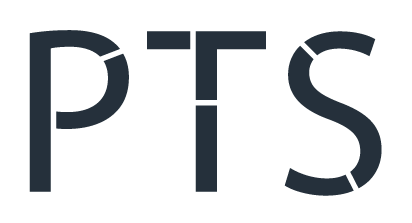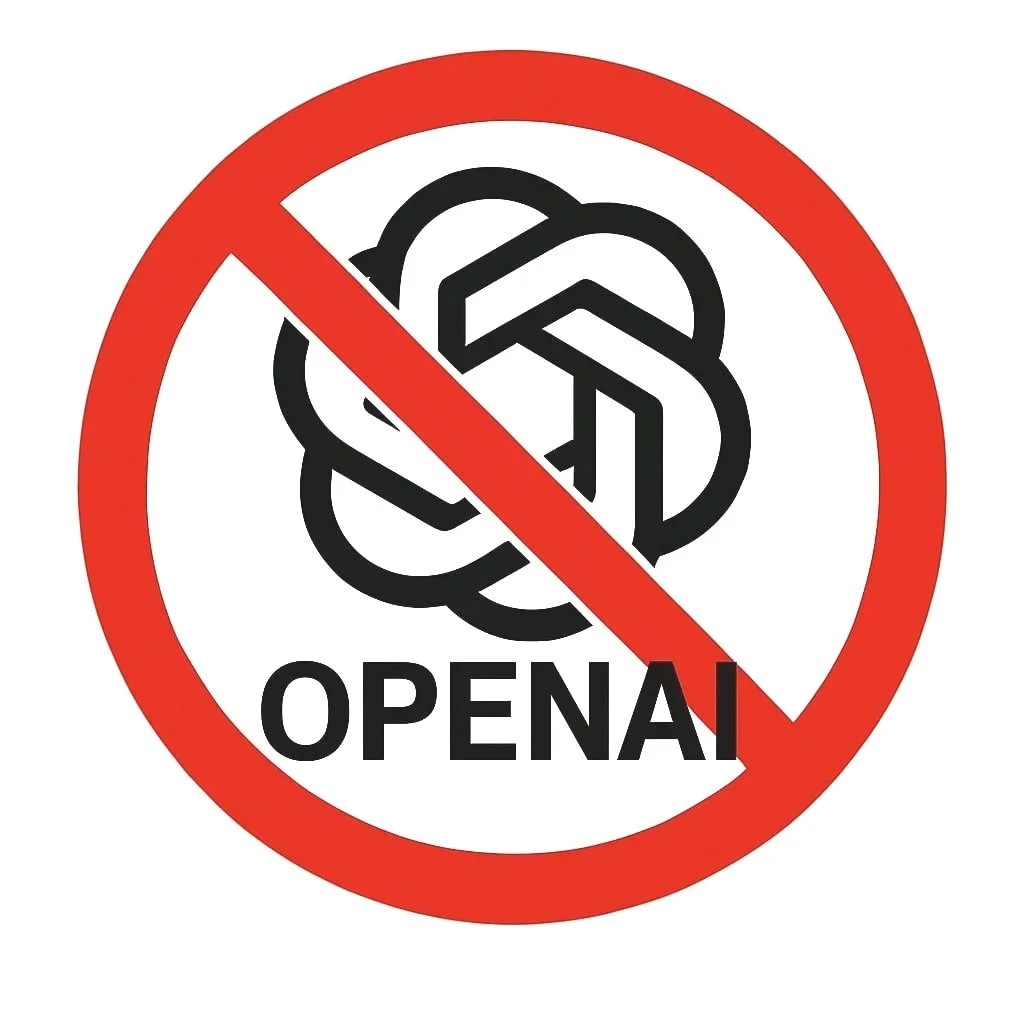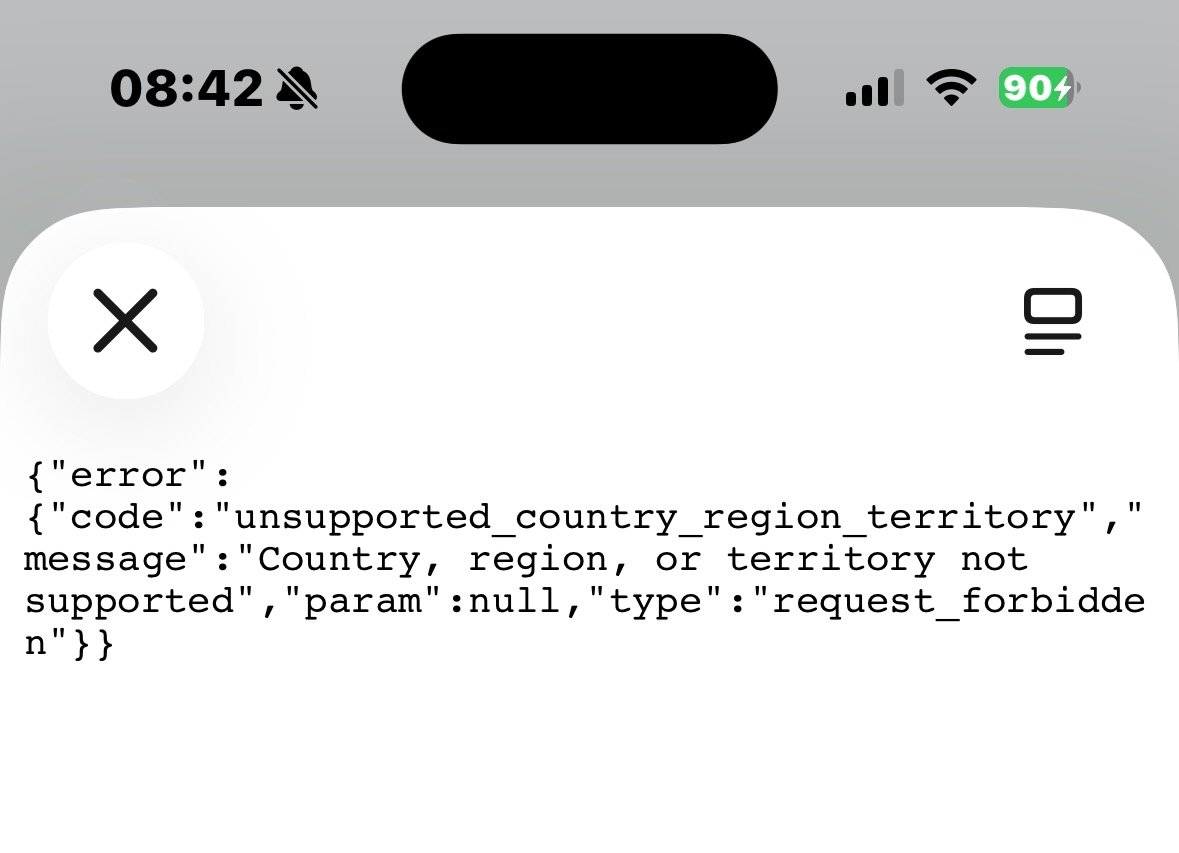ChatGPT Ban in Hong Kong and China (iOS26 update Sep 2025)
Open AI and chat GPT blocks Hong Kong
The ChatGPT Ban in Hong Kong: What It Means for Businesses and Everyday Users
In July 2024, OpenAI took the unexpected step of officially restricting access to ChatGPT and its other services in Hong Kong. The announcement aligned Hong Kong with mainland China, where OpenAI tools have never been available, but came as a surprise to many in the city.
For years, Hong Kong has been known as a global technology and financial hub, a place where businesses and individuals could freely adopt the latest digital innovations. The sudden inclusion of Hong Kong in OpenAI’s ban list left many professionals, students, and organisations questioning why the territory had been singled out.
At the same time, an odd contradiction emerged. Microsoft Copilot (which is built directly on OpenAI’s GPT-4 and is now rolling out GPT-5) remains fully available in Hong Kong. This means businesses can legally and securely use the same technology that OpenAI has blocked, simply by purchasing it through Microsoft 365.
This contradiction has caused frustration, confusion, and debate in equal measure. To understand the implications, we need to look at why the ban matters, what alternatives exist, and what this means for both business and casual users in Hong Kong.
iOS 26 and the ChatGPT Frustration
With the release of the new iPhones and the upcoming iOS 26 update, Apple has introduced deeper integrations with ChatGPT for Siri and system features in many regions. However, Hong Kong users remain excluded. On local iPhones, ChatGPT still appears as an option in the settings, giving the impression it can be enabled. But when you try to activate it, the process ends with a blunt error message.
This half-available feature is frustrating for users. It highlights the inconsistencies of the ban: ChatGPT is officially blocked in Hong Kong, yet Apple still shows the integration as if it were available. The result is a poor user experience, especially when other AI apps continue to work normally on iOS with no such restrictions.
What makes this even more confusing is that GPT-5 is readily available in Hong Kong through Microsoft Copilot. Anyone can officially use it on their iPhone via the Copilot app, which is widely supported and integrated with Microsoft 365. In other words, Hong Kong users can run the latest GPT-5 model on their phones with no issue, just not natively through Apple’s own interface, even though the option is visibly presented.
iOS26 ChatGPT Error message for users in Hong Kong
ChatGPT still appears as an option in iOS 26 on Hong Kong iPhones, but attempting to enable it only returns an error message.
For businesses and individuals who rely on iPhones as their primary work device, the inability to access ChatGPT through native iOS features creates yet another barrier. It also underlines how policy restrictions, rather than technical limitations, are dictating which AI tools are available in Hong Kong.
Why Was ChatGPT Banned in Hong Kong?
OpenAI has not explained in detail why it chose to include Hong Kong in its ban. Instead, Hong Kong was grouped with mainland China and a small number of other restricted regions.
For many in the business community, this decision feels inconsistent with Hong Kong’s unique position. Unlike mainland China, Hong Kong has its own regulatory framework, legal system, and long-standing tradition of open access to the global internet.
The move has created a peculiar situation: while much of the world explores new business models and efficiencies with ChatGPT, Hong Kong companies must either find workarounds or turn to alternatives.
The Workarounds: Convenient but Risky
Since the ban, individuals and businesses have turned to common workarounds to keep using ChatGPT:
VPNs – Masking location to bypass OpenAI’s restrictions.
Third-party platforms – Services like Poe or Perplexity that provide access to OpenAI models from outside Hong Kong.
While these methods work, they come with serious limitations:
Security concerns – VPN use and unverified third-party platforms can expose sensitive data.
Unreliable access – Policies can change overnight, cutting off service without warning.
Compliance risks – For regulated industries, routing company data through unofficial services raises red flags.
From a business perspective, these are not long-term solutions. Companies need sanctioned, compliant, and enterprise-ready tools — not improvised fixes.
Microsoft Copilot: The Official Workaround
The most significant alternative is Microsoft Copilot with M365, which is fully available in Hong Kong. Copilot integrates OpenAI’s GPT models directly into Microsoft 365 applications such as Word, Excel, Teams, and Outlook.
This creates a paradox: while OpenAI bans Hong Kong from using ChatGPT directly, Microsoft sells access to the same underlying technology.
For businesses, this contradiction is actually a lifeline. Copilot provides:
Enterprise integration – AI directly inside widely used productivity tools.
Security and compliance – Microsoft provides enterprise-grade data protection and regional compliance standards.
Productivity benefits – Automatic drafting, summarisation, data analysis, meeting notes, and workflow automation.
With GPT-5 now being rolled out across Copilot, Hong Kong businesses are effectively ahead of casual users who no longer have direct ChatGPT access.
Alternatives to ChatGPT in Hong Kong
Beyond Copilot, some other options exist — though they are not natively available in Hong Kong.
Google Gemini
Not officially available in Hong Kong. Gemini can only be accessed via VPN or through third-party platforms like Poe.
For businesses, using VPNs or unofficial apps creates the same compliance and security concerns as with ChatGPT.
While Gemini is strong in creative and reasoning tasks, it is not a straightforward choice for Hong Kong organisations.
Anthropic Claude
Also not natively available in Hong Kong.
Accessible through third-party apps such as Poe, which aggregate multiple models.
Claude is well-regarded for long, structured outputs and reasoning, but companies should be cautious about how they access it.
Third-party Aggregators (Poe, etc.)
Provide access to GPT, Gemini, and Claude models in a single platform.
Useful for individuals and casual use, but present risks for businesses:
Lack of clarity on where data is stored.
No guarantee of continuity.
Limited compliance or enterprise support.
DeepSeek: China’s Emerging AI Alternative
While OpenAI services remain restricted in Hong Kong and Mainland China, local firms are rapidly developing home-grown platforms. DeepSeek is one of the most notable. Built in China, it is designed to meet local compliance requirements while offering competitive performance for enterprise use cases.
Key points about DeepSeek:
China-developed AI model family with a focus on Mandarin and regional dialects, alongside English support.
Enterprise positioning — marketed as a secure, compliant option for organisations concerned about data residency and local regulations.
Use cases include customer service automation, knowledge base search, and research assistance in finance and other sectors.
Significance — highlights how quickly China’s domestic AI ecosystem is maturing while OpenAI remains unavailable.
Grok: An Alternative Available in Hong Kong
Unlike OpenAI’s GPT models, Grok, developed by xAI, is accessible in Hong Kong. Positioned as a conversational AI with a different flavour from ChatGPT, Grok is integrated into X (formerly Twitter) and marketed as a more playful, real-time tool.
Key points about Grok:
Available in Hong Kong without the restrictions applied to OpenAI services.
Backed by xAI (founded by Elon Musk) and closely linked to the X platform.
Designed for real-time use, with a less formal tone than other LLMs.
Enterprise potential is still limited compared with Microsoft Copilot or DeepSeek, but Grok adds another option for businesses and individuals seeking access to generative AI tools in Hong Kong.
Why Copilot Stands Apart
For companies, Copilot is the only officially supported and enterprise-ready route. It provides legal, secure, and long-term access to OpenAI technology in Hong Kong — something no workaround or third-party platform can offer.
The Business Impact of the Ban
The ChatGPT ban in Hong Kong has several consequences for companies:
Slower AI adoption for SMEs – Smaller firms that had been experimenting with ChatGPT directly now face barriers.
Microsoft ecosystem lock-in – Copilot is valuable but ties companies deeper into Microsoft services.
Compliance headaches – Businesses tempted by VPNs or third-party platforms could expose themselves to regulatory issues.
Larger enterprises are already adopting Copilot, but small and medium-sized businesses may struggle to justify the cost compared with ChatGPT’s more affordable direct subscriptions.
The irony is that the ban affects SMEs more severely than corporates, potentially widening the digital gap between large and small players.
Everyday Users: Frustration Without a Fix
For casual users, students, and freelancers, the ban is simply frustrating. Many relied on ChatGPT for research, study assistance, and creative projects. Now, their options are limited to:
Paying for Copilot, which is designed for enterprise use.
Using VPNs, which is inconvenient and potentially risky.
Turning to third-party aggregators, which are less reliable.
Meanwhile, Hong Kong residents can freely use services like Gemini or Claude only through intermediaries such as Poe, but not directly. This inconsistency reinforces the perception that the ban is illogical and misaligned with the territory’s open digital economy.
A Ban That Makes Little Sense
The situation makes a mockery of the policy itself.
OpenAI bans ChatGPT in Hong Kong.
Microsoft, its biggest partner, sells access to the same models through Copilot in Hong Kong.
Businesses can adopt GPT-4 and GPT-5 securely, while individuals are left out.
For many, this feels like an artificial restriction that harms Hong Kong’s competitiveness while doing little to achieve a clear purpose.
What Businesses in Hong Kong Should Do
Given the contradictions and risks, companies should take a strategic approach:
Avoid insecure workarounds – VPNs and unverified apps expose data unnecessarily.
Adopt Microsoft Copilot – It offers official, compliant access to OpenAI models.
Experiment carefully with alternatives – If using third-party platforms like Poe, treat them as non-core tools.
Develop AI governance – Establish policies for responsible and secure AI use.
Ask for advice - Work with an IT consultancy who can guide you and support you through your planning.
At PTS, we work with organisations across Hong Kong to adopt new technologies safely. Our managed IT services, cybersecurity expertise, and cloud migration support help businesses integrate AI tools without compromising compliance or security.
Conclusion
The ChatGPT ban in Hong Kong remains one of the most puzzling technology restrictions in recent years. It has created a two-tier system:
Businesses can access OpenAI models through Microsoft Copilot, with GPT-5 already rolling out.
Casual users are blocked from direct ChatGPT access, forced to rely on VPNs or third-party apps.
The result is an inconsistent policy that frustrates individuals, challenges small businesses, and ironically boosts Microsoft’s market dominance.
Yet, the ban has not stopped AI adoption in Hong Kong. Companies are pressing ahead with Copilot, while individuals continue to find creative ways around restrictions.
For now, the message is clear: if you’re a business in Hong Kong, Copilot is the safest and most effective route to AI adoption. If you’re a casual user, the ban is a barrier, but not a dead end.
While businesses explore alternatives such as Microsoft Copilot or local AI platforms, it’s important to maintain a strong technology foundation. Reliable IT support ensures that day-to-day systems, networks, and security remain stable, so your organisation is ready to adopt new tools as they become available.
If your business needs help in planning for an navigating the adoption of AI, contact us for advice


